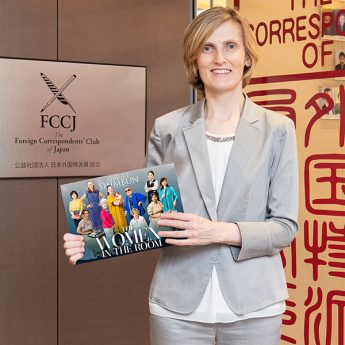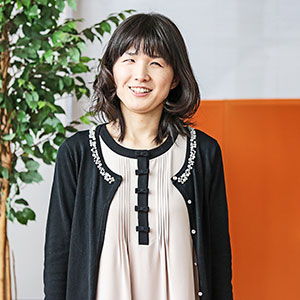
Rachna Ratra, sales and marketing director at Robert Walters Japan K.K.
After coming from New Delhi, India, to Japan on the Monbukagakusho Scholarship to attend Osaka Gaidai University, Ratra began her career journey in Tokyo at an IT startup, before moving into recruitment. She is now celebrating her 13th year at Robert Walters Japan.
Balancing her family with the demands of being a leader at work, she is well-acquainted with the challenges of being a working mother in Japan. Finding strength in a supportive work environment and family, and maintaining a positive, confident mindset, Ratra has shown that career success starts with the right attitude.
What are the best and worst decisions you have made in your career?
My first good decision was to come to Japan and get an international education. It really opened up my mind and I was able to meet a lot of people with diverse backgrounds. Next was accepting a job offer at Robert Walters Japan, a progressive firm that provides equal opportunities for everyone, both male and female, based on merit.
In terms of the worst decision of my career, I don’t think we always make the best or most perfect decisions, but I don’t have any regrets. It’s all been a great learning experience.
What has been your greatest success?
Playing a part in growing a new business at Robert Walters Japan. When I joined in 2004, the sales and marketing team had just been created. I was the third person to join the team and at that stage we did not have a presence in the sales and marketing area in Japan. Now, the division has seven teams and a total of nearly 40 people, covering a range of industries.
What has been the greatest challenge in your career and how did you meet it?
My appointment to the position of director. It was quite a big departure from managing one team or a couple of teams—suddenly you are in a leadership role and it’s quite a big step up in responsibility and level of ownership. That was five years ago, and in my second year as a director I also became a mother, so I had to learn to juggle my new responsibilities and family life. I was able to do this with the support of management, my peers and my husband.
As a working mother, it helps to work for a firm that values productivity, contribution and performance over the number of hours you work in a day. I had the right kind of environment to overcome those challenges.
How do you achieve a work–life balance?
I am focused and prioritise my time—I know exactly when I need to leave work every day and do my best to accomplish what I need to during work hours and not let work spill into my personal time.
In terms of Robert Walters, management proved to be flexible and understanding upon my return to work. Currently there are six working mothers in the division and all of them are very successful. I am able to give them the same understanding and flexibility that I have received.
What have you learnt from being a leader?
As a leader, you have to take ownership of your successes and failures. It’s about being decisive and trusting your instincts. You may not always have the ideal solution for everything, but you have to take a leap of faith sometimes and learn from both your mistakes and achievements.
What challenges do women in Japan face when it comes to taking on leadership roles?
There remains a significant imbalance between the numbers of men and women in senior management positions globally. Firms and individuals need to shift their mindset. Many in Japan, including women, still believe that women should remain at home after having a child. Unless that mentality changes, it will always be an uphill battle for women. Women also have to believe that they can actually take on new career challenges. Their families, particularly their partners, need to support them and share childrearing and household responsibilities.
What is your advice to the next generation of female leaders?
I would say that leadership is something that can and should be learned. It is something you’re continually honing and reflecting on to identify ways to improve. Have faith in your ability to take on new challenges and responsibilities and don’t hesitate to raise your hand when a great opportunity comes along.






